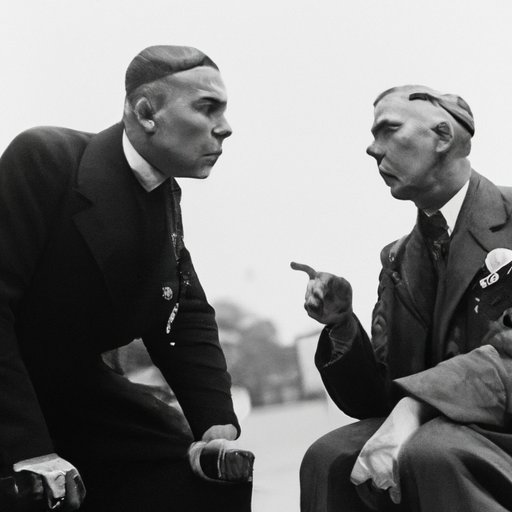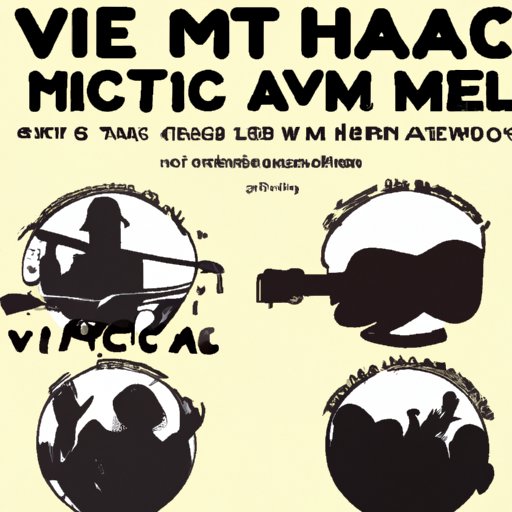Introduction
The Vietnam War was a long and costly military conflict that lasted from 1955 to 1975. It was fought between North Vietnam and South Vietnam and was largely seen as a proxy war between the United States and the Soviet Union. The war had a devastating impact on both countries and left deep scars on the culture of the United States. In this article, we will explore how the Vietnam War changed American culture.

The Impact of the War on Veterans
The Vietnam War had a profound impact on the veterans who served in it. Many of them returned home with psychological trauma, physical injuries, and financial struggles. For many, returning to civilian life was difficult and they often felt alienated from society. PTSD (post-traumatic stress disorder) was a common problem for veterans, as was depression and substance abuse. Additionally, many veterans experienced physical injuries, such as amputations, that made it difficult for them to find employment or engage in activities they once enjoyed.
The financial struggles of veterans were also significant. Many had difficulty finding jobs, and those who did often found themselves underpaid and undervalued. Additionally, there were inadequate resources available to help veterans transition back into civilian life. This lack of support made it difficult for veterans to rebuild their lives after the war.

How Political Discourse Changed in the Wake of the War
The Vietnam War had a huge impact on political discourse in the United States. It led to a polarization of views, with some supporting the war and others vehemently opposed. It also led to an increased skepticism and cynicism toward the government, as more and more people began to question its motives and decisions. This skepticism was further exacerbated by the Watergate scandal, which revealed widespread corruption within the government.
Additionally, the war led to the rise of an anti-establishment sentiment. More and more people began to reject traditional values and challenge authority. This shift in attitudes had a major impact on politics and the way people viewed the government.
The Emergence of Anti-War Protest Movements
The Vietnam War spurred the emergence of numerous anti-war protest movements. These ranged from student activism to peaceful demonstrations and civil disobedience. The movement gained traction as more and more people began to oppose the war and demand an end to it. This opposition eventually led to the withdrawal of US troops from Vietnam in 1975.

The Rise of the Vietnam War Generation
The Vietnam War also had a major impact on the generation of Americans who lived through it. This generation is often referred to as the “Vietnam War generation” and is characterized by its rejection of traditional values and embrace of counterculture. This included the rise of the hippie movement, the use of drugs, and the exploration of Eastern religions and philosophies.
This shift in attitudes had a major impact on social change and led to the legalization of abortion, the decriminalization of homosexuality, and greater acceptance of gender equality. It also led to the emergence of new forms of art and music that expressed the emotions and experiences of the Vietnam War generation.
Changes in Popular Music and Art
Popular music and art were profoundly affected by the Vietnam War. Protest songs emerged that expressed the anger, frustration, and sorrow of those who were affected by the war. Artists also created powerful works of art that depicted the horrors of the war and highlighted the human cost of conflict.
These works of art and music served as an expression of emotion for those who lived through the war and helped them cope with the trauma they experienced. They also helped spark conversations about the war and spread awareness of its impacts.
The Legacy of Vietnam War Memorials
The legacy of the Vietnam War can still be seen today in the form of memorials dedicated to those who served. The National Vietnam War Memorial in Washington DC serves as a reminder of the sacrifices made by American soldiers and victims of the war. Additionally, there are numerous local memorials across the country that honor the brave men and women who served in the conflict.
The Impact of the War on International Relations
The Vietnam War had a major impact on international relations. It further heightened Cold War tensions between the United States and the Soviet Union and led to an increase in U.S. isolationism. Additionally, the war sparked an international outcry against the United States and its actions in Vietnam.
Conclusion
The Vietnam War had a profound impact on American culture. It changed the way people viewed the government, led to the emergence of anti-war protest movements, and shifted attitudes toward traditional values. It also resulted in lasting changes in popular music and art, as well as memorials to honor those who served. Finally, the war had a major impact on international relations, leading to further Cold War tensions and U.S. isolationism.
The legacy of the Vietnam War remains to this day, and its lessons are still relevant. We must remember the human cost of war and strive for peace and understanding in our world. Only then can we hope to prevent future conflicts like the Vietnam War.
(Note: Is this article not meeting your expectations? Do you have knowledge or insights to share? Unlock new opportunities and expand your reach by joining our authors team. Click Registration to join us and share your expertise with our readers.)
